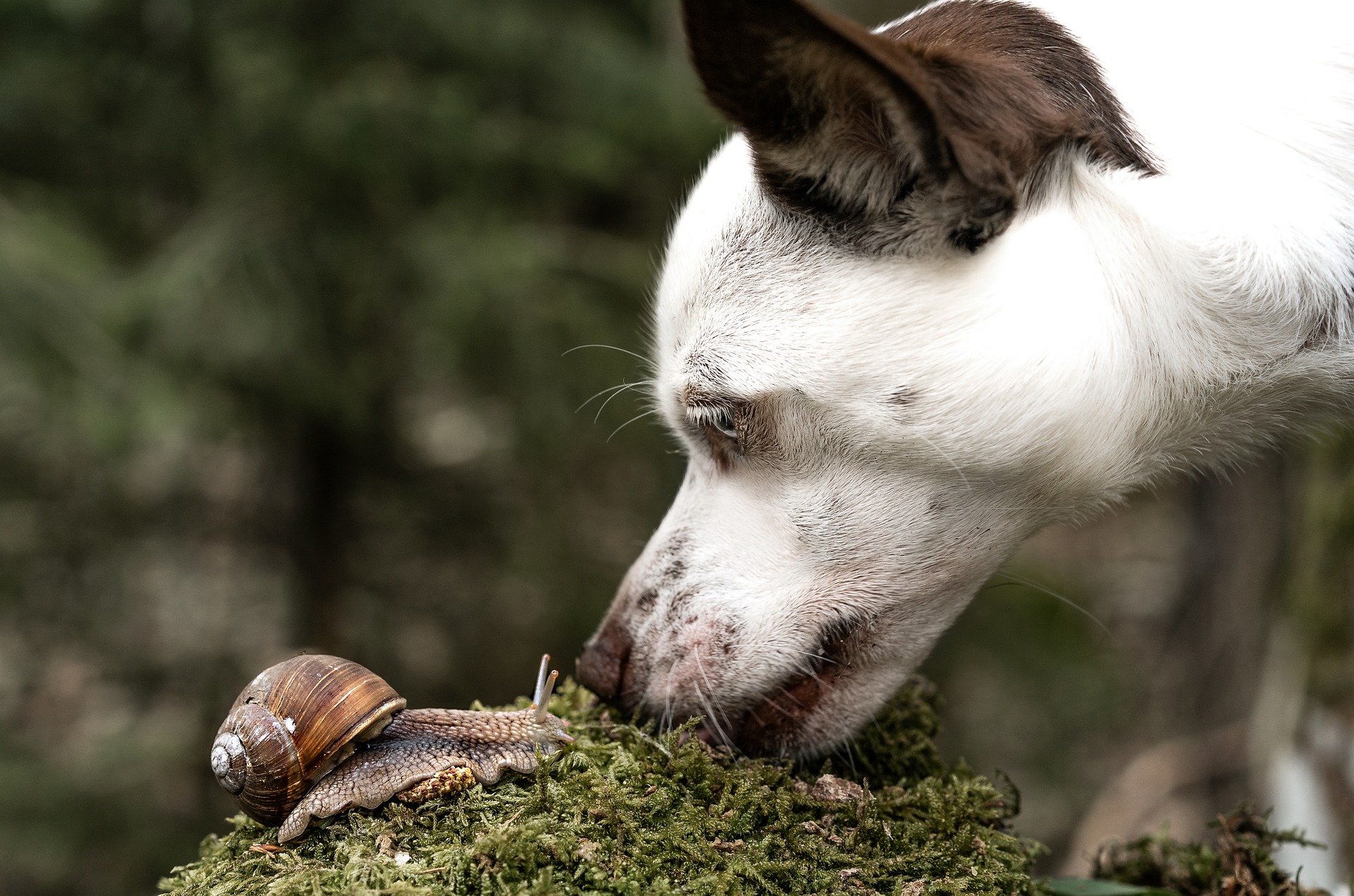
Millions of dog owners are unaware of a deadly disease spreading across the UK, according to new research.
While half (52%) of dog owners are aware of lungworm, 39% admitted they didn’t know exactly what it is, and a further 1 in 10, mostly younger respondents, were unaware of lungworm entirely.
Thousands of cases of the potentially fatal disease have been reported across the UK, with a fifth (21%) of the dog owners saying that their own dog has had a case of lungworm, while a quarter know a dog who has had a case of it.
A fifth (19%) of dog owners whose pet has actually had a case of lungworm admitted they still weren’t entirely sure what it is, while 5% didn’t know at all.
Dog owners in the north east of England (40%) and in London (39%) are most likely to have directly experienced lungworm in their pet.
Vets4Pets, who carried out the research, is now working with Bayer to help inform owners of the dangers of this deadly parasite.
Dr Huw Stacey, vet and director of clinical services at Vets4Pets, said: “Our research has discovered that awareness, and particularly knowledge, of the parasite lungworm is still pretty low amongst UK dog owners.
“It appears that many people still don’t fully understand how their dogs can contract it, what threats it poses and how important, and easy, prevention is.
“Most worryingly a third of those surveyed admitted they don’t currently give their dog any preventative treatment to protect their dog against lungworm.
“And when asked why they don’t, we found that the most common reason was apathy, or a lack of awareness, as 35% said they didn’t even know that lungworm was preventable.
“There are many simple steps owners can take to help prevent their dog contracting lungworm, but ensuring your dog is given lungworm preventative treatment prescribed by your vet monthly, is really the only way of keeping them protected.
“The parasite was originally believed to be limited to southern regions, but research has revealed the parasite’s presence in north England, and even Scotland, which were not previously considered at risk, so this is something all UK dog owners need to be aware of.”
Lungworm is a parasite that can be deadly to dogs if ingested. It uses multiple animals to help complete its lifecycle, with dogs and foxes as the primary hosts, and slugs, snails and even frogs as the intermediate hosts.
Vets4Pets’ research found that less than a third of dog owners were able to correctly identify that slugs (32%) and snails (27%) spread the lungworm parasite. 13% thought the parasite is spread by sheep or rats, and 6% of UK dog owners even thought otters were to blame.
Evidence shows that foxes are also spreading the disease, which only 13% of those surveyed knew, as they can host the parasite, alongside dogs. A recent survey revealed that lungworm prevalence in foxes in Greater London has reached nearly 75%, while the national average is only 18.3%.
“Lungworm is spread when the parasite’s larvae are produced inside a dog or fox and passed through their faeces, which are eaten by slugs, snails or frogs who then become infected with the parasite,” explained Dr Stacey.
“Unlike other diseases, lungworm can’t be passed from dog to dog, but instead if a dog accidentally eats an infected slug or snail, or comes into contact with their slime, they can contract the disease.
“And the risk of dogs coming into contact with these infected molluscs is high, as it is believed that the average British garden contains over 20,000 slugs and snails, and the larvae which are released in the slime can survive for at least 15 days.
“That’s why, as well as using preventative treatment, it is crucial owners don’t leave their dog’s toys or water bowls outside overnight, or let them pick up sticks in the park, as these could all have been exposed to slug or snail slime.
“Our research revealed that pet owners whose dogs have previously contracted lungworm are significantly more likely (97%) to leave their dog’s items outside overnight, compared to just 35% of dog owners whose pets have never contracted lungworm – so it is an important extra precaution.”
Older respondents were able to identify more physical signs of lungworm. On average, dog owners aged 18-34 could identify 2.2 symptoms of the condition, whilst respondents aged 55 or over were able to identify an average of 3.7.
“Common signs of lungworm include coughing and breathing problems, but also weight loss, vomiting, diarrhoea, tiredness, blood clotting or excessive bleeding from small wounds and changes in behaviour,” continued Dr Stacey.
“However, in many cases, a dog doesn’t display any clear signs of the disease for quite some time, or if they do, the signs can present very differently in each dog. Signs like coughing and breathing difficulties can even often be confused with conditions like kennel cough.
“This means lungworm can sometimes be hard to diagnose, so it is vital that owners are aware of the risks, protect their pet from the parasite and visit their vets if they have any concerns.”
The national veterinary group recently hosted a ‘Lungworm Awareness’ Day with Bayer to educate London dog owners on the potential risk facing the thousands of dogs across the city.
With 1 in 10 people living in London owning a dog, around 310,000 dogs in the capital and 1,622 reported cases of lungworm within a 50-mile radius of central London, the parasite is a real concern in this region.
The pop-up activation in Victoria Park offered advice on how to spot lungworm and how easily it can be prevented to the passing dog walkers.
Glen Snowden from Hackney, who visited the pop-up with his dog Lily, said: “Although we protect Lily against lungworm, it was lovely to see that Vets4Pets and Bayer were in the park to educate all of us a little more around the concerns of this condition.”
Juliette Tuke was enjoying a walk with her dog Coco. She said: “I came to the park with my dog Coco when I saw the stand and was curious. I knew about lungworm when I first got Coco as a puppy, but I didn’t realise how prevalent it was in London and so it’s great Vets4Pets are doing this educational campaign for dog owners in East London.”
While Jo from Hackney, said: “I was aware of lungworm but I had no idea that a dog licking snail or slug slime was enough for them to catch lungworm so I’m definitely going to go away and check that we are covered with our worming treatment now.”
Vicky McAlister, senior brand manager at Bayer, said: “The Vets4Pets pop-up event is a great way to get in front of dog owners and try and combat these knowledge gaps.
“However, while we want to educate dog owners on what exactly lungworm is, the main thing we want them to take away is knowing that this disease is easy to prevent with monthly preventative treatment.
“In recent years lungworm has spread throughout the UK, so this information isn’t just relevant to dog owners in London, but to those across the nation. Owners can check if there are cases of lungworm in their local area at www.lungworm.co.uk/lungworm-map.”
For further information on lungworm, please visit: www.vets4pets.com/pet-health-advice/dog-advice/lungworm-and-your-dog/

